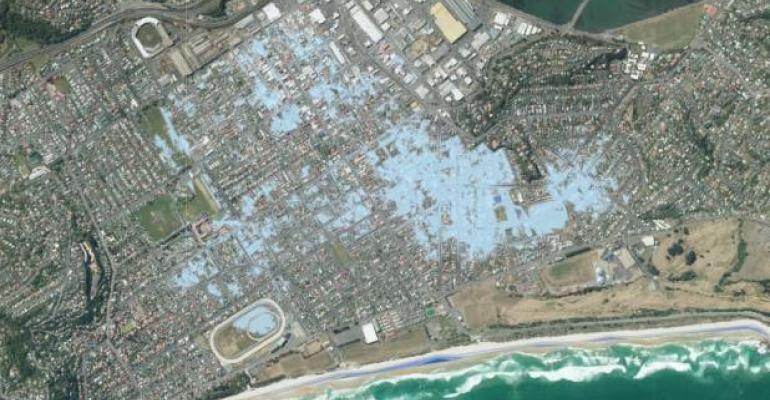- AUTHORCreating a climate-safe Dunedin through community-driven climate action
- January 29 2018
Creating a climate-safe Dunedin through community-driven climate action

2018 may well be the year New Zealand gets serious about adapting to our changing climate. Last year, and the start of this one, gave all of us plenty of opportunities to experience a future in which creeping sea level rise and extreme weather – from drought to flood to surprise storm surges – make day-to-day life more precarious and more expensive.
Last year’s various high-level climate change reports also made us increasingly aware of the roadblocks to effective decision-making around climate adaptation (the Adapting to climate change in New Zealand: Stocktake report, from the Climate Change Adaptation Technical Working Group; the Coastal hazards and climate change guidance published by the Ministry for the Environment; and the Human health impacts of climate change for New Zealand report produced by Royal Society Te Apārangi are three examples).
At the Deep South Challenge, we are often asked, “which cities are doing climate adaptation well?” People are looking for examples and for leaders to show how these roadblocks can be systematically dismantled.
And now, a community-driven initiative in South Dunedin may just get the ball rolling. “Our City, Our Climate,” led by the Blueskin Resilient Communities Trust and supported by the Deep South Challenge, is calling in the big guns – key climate scientists, local and central government decision makers, iwi with cultural and financial assets at stake, and property and business owners with livelihoods on the line, to find ways to break through the red tape that currently hinders progress on climate adaptation.
The urgency of adapting to our changing climate is, in the words of Scott Willis, organiser of the initiative, a “no brainer. We know what’s coming,” he says, “even if we don’t quite know when. We have to adapt.”
The event, being staged as three workshops over February and March, will bring together climate and engagement researchers, city and regional councillors and senior staff, the Otago Chamber of Commerce, the University of Otago, Otago Polytechnic, the Southern District Health Board, local NGOs and residents.
The event aims to bring climate science to the general public and to local decision-makers, to enable a more coordinated, participatory approach to tackling the challenge of climate change in the city of Dunedin.
“This isn’t just about hard materials, or about managed retreat,” Scott says. “It’s about how we think, what our processes look like. It’s about being more open to change, and about becoming more resilient.”
Given all the news lately on the importance of climate adaptation and the fact that New Zealand, like the rest of the world, is lagging well behind where we need to be, the event might open up some ways forward for different communities facing various climate adaptation challenges.
“The real challenge,” Scott continues, “is that we move so damn slowly, or we can’t actually find ways to move. People have got to feel that they have the ability to be more creative, to find different pathways to change and adapt.”
So this event is about decision-making at the local and regional level – where most climate adaptation decisions need to be made. “I don’t know the answer,” he says, “but I’m intimate with the questions. The process of developing district plans – the documents that control what we can do in the environment – is slow and cumbersome. It’s not suited to rapidly evolving climate science and the increased pace of climate change. We need a simpler, more flexible process. So how can we adapt our decision making process to our up-to-date science? How can we make local government more friendly for decision-making on climate action? How can the community participate in decision making and action more effectively? We need to work through these questions and challenges together.”
The event has been in the pipeline for a long time, but resourcing from the Deep South Challenge, and the support of the challenge to provide climate and social science expertise, has finally made it possible. The first two workshops will be held on February 8 and 9, with a third workshop in early March. For more information check out http://climatesafehouse.nz/event/our-city-our-climate/
For more information about the Deep South Challenge (and particularly our Engagement and Impacts & Implications programmes), check out our website: www.deepsouthchallenge.co.nz